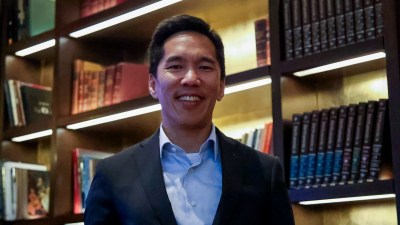Good laws alone don’t make just society, change mindset: CJI Chandrachud
The CJI said non-discrimination on the basis of sex, equality before the law and equal opportunity in matters of public employment broadly form the foundational principles of equal opportunity and equal status envisaged by the Constitution.
 Chief Justice of India D Y Chandrachud
Chief Justice of India D Y ChandrachudGood laws alone do not make for a just society and what’s needed, above all, is a change in the mindset, Chief Justice of India D Y Chandrachud said Monday while speaking on issues concerning women of the country.
Addressing a gathering at the News18 Network’s ‘She Shakti’ event, the CJI said non-discrimination on the basis of sex, equality before the law and equal opportunity in matters of public employment broadly form the foundational principles of equal opportunity and equal status envisaged by the Constitution.
“There is no dearth of substantive and procedural legal provisions targeted towards protecting the interests of women in private and public situations. But good laws alone do not make for a just society. Above all, we need to change our mindset. The mindset must move from making concessions for women to recognising their entitlement to lead lives based on freedom and equality,” he said.
The CJI added, “We must zealously guard against apparently protective laws infringing women’s liberties and choices,” while referring to the December 2007 SC ruling in Anuj Garg vs. Hotel Association, holding Section 30 of the Punjab Excise Act, 1914, which prohibited the employment of any woman in any part of such premises in which liquor or intoxicating drug is consumed by the public.”
The SC, he said, “Struck down such a law, as it gave expression of oppressive cultural norms, which were contrary to the autonomy of women.” “We must foster institutional and individual ability to look beyond the ‘male default’ … a phenomenon, which treats the public domain as a male preserve and disparages, discards and erases women’s experiences to the contrary,” he added.
Saying that the participation of the women in the labour force is 37 per cent and their contribution to the GDP is 18 per cent, he said, “We have not exactly met the pre-independence hopes about women’s economic participation.” Explaining this, he said, “A part of the reason is the continued gendered allocation of domestic labour. Even as women are entering the workforce, they are never divorced from the domestic realm. They simultaneously juggle domestic and care-giving chores. They are doubly burdened. Besides domestic work being unaccounted for in economic terms, it obstructs women’s ability to hold on to paid work or take on greater professional responsibility.”







